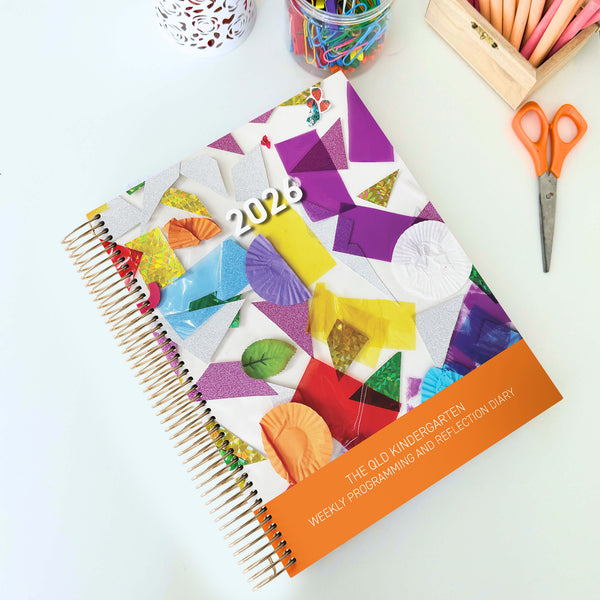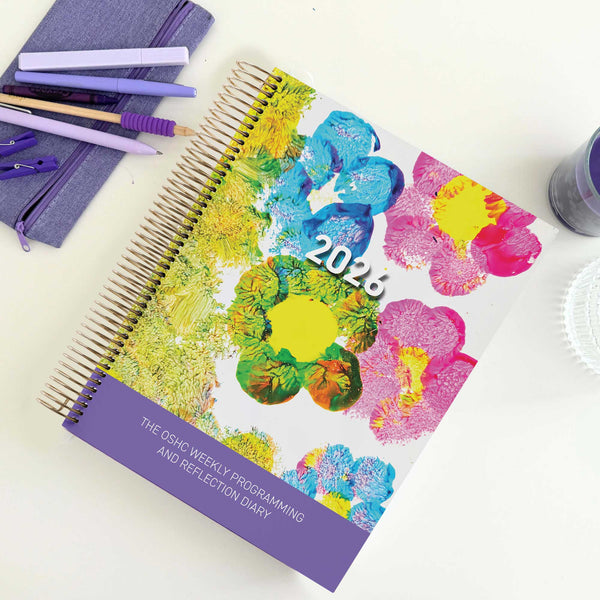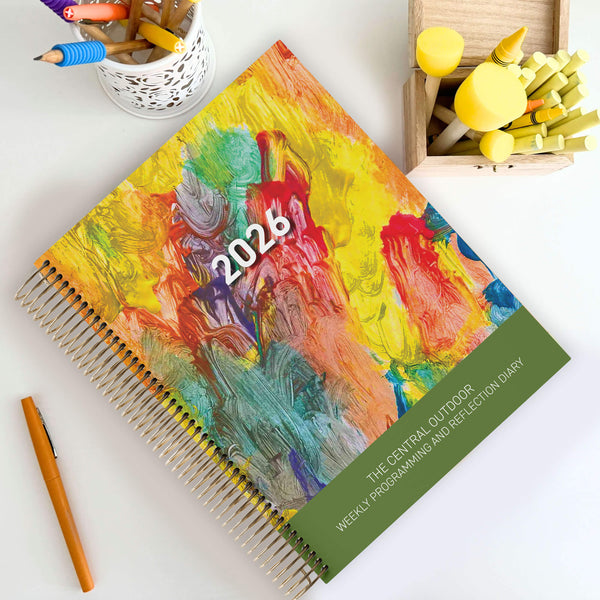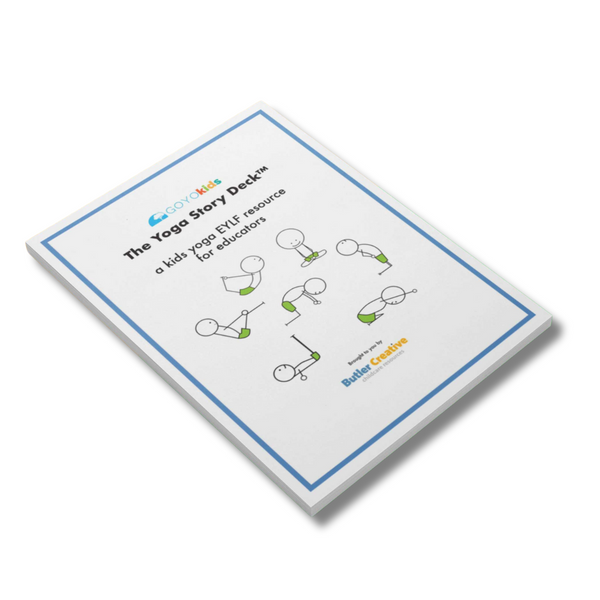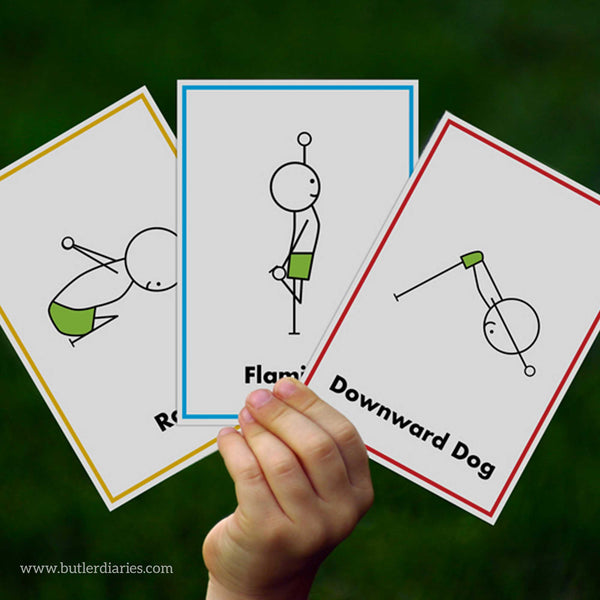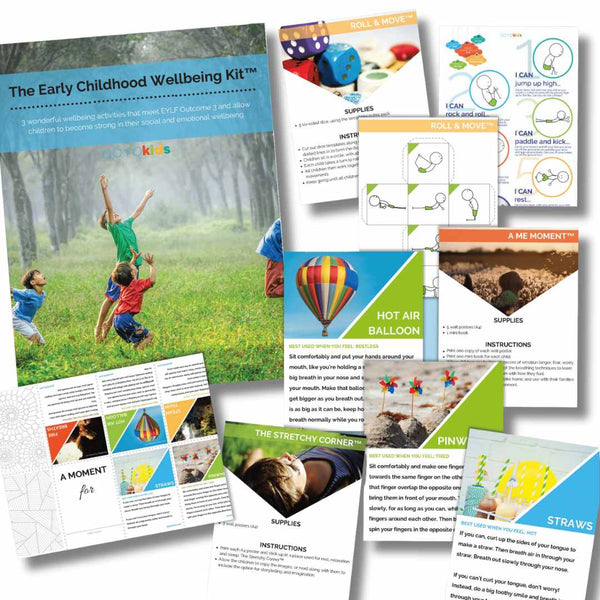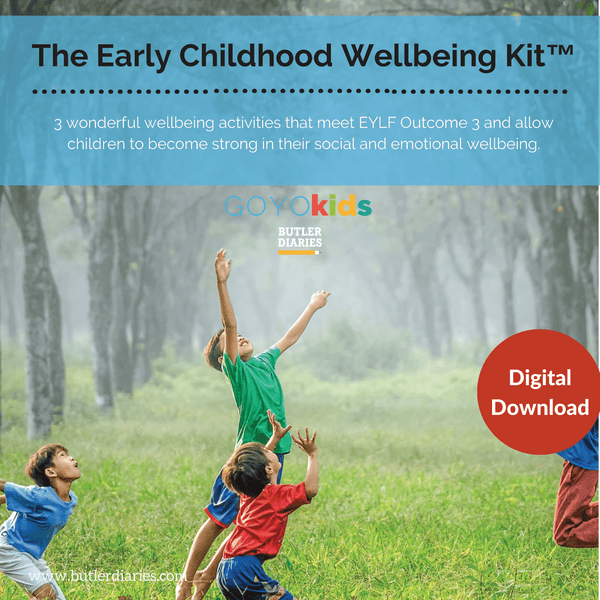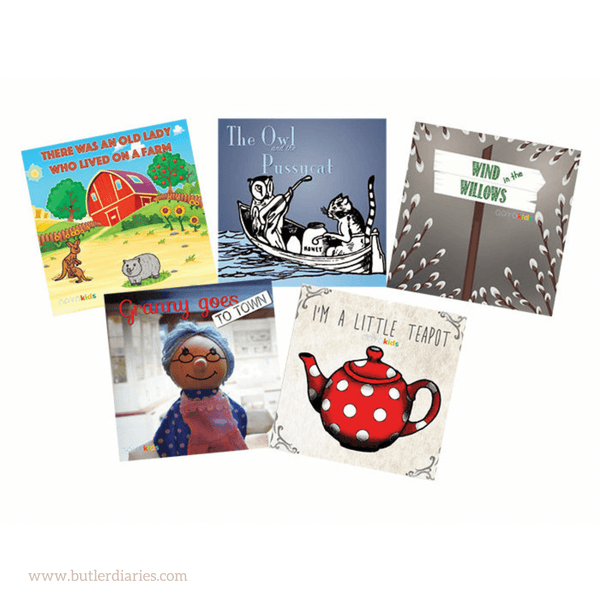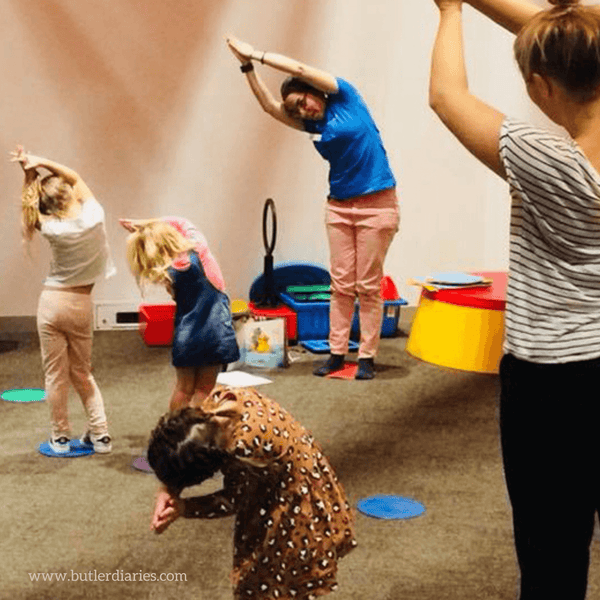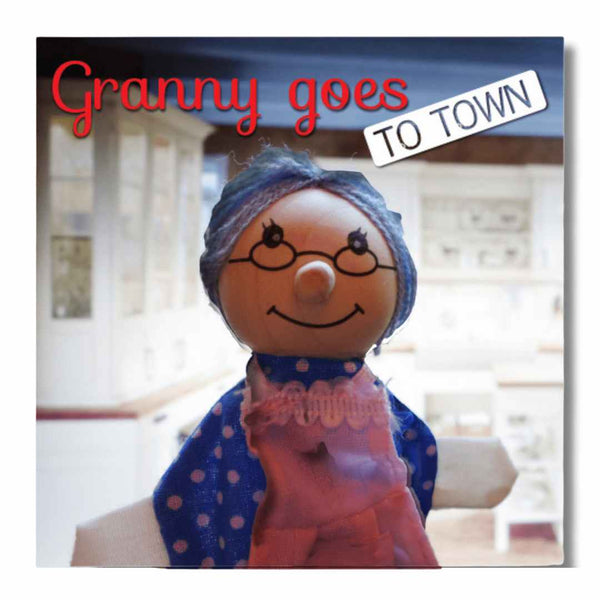I was a family day care educator when my children were little. The industry was not as regulated back then and there were certainly not the resources available today that would enable you to stay within the regulatory guidelines.
I am now a designer of quality early childhood education and care resources that help educators and services do their job with more focus on children and less paperwork!
Butler Creative Childcare Resources makes fun and creative products that require some thinking outside of the box while still relating to quality areas of the NQS.
Life doesn’t have to be about tables and templates! While a structured layout to help with programming (like our very popular Weekly Programming and Reflection Diaries) can help greatly to inspire relevant observations and ensure compliance within the NQS, it is just one way of making sure we are putting children’s needs first in creative and fun ways. Here are some examples of how our products do it.

Yoga stories
(QAs 2: Health, 2.1.1: Wellbeing and Comfort, 2.1.3: Healthy lifestyle, 3.2.2: Play based learning, 5.2.2: Self-regulation, 6: Collaboration with families and communities)
We have developed a Yoga Story Deck of cards, an educational resource that helps children to become strong in their emotional and social wellbeing. Imagine if you could make it yoga time, anytime? You can. We empower educators to teach children yoga, even if you’ve never done yoga before. Use ‘stretchy stories’ combined with easy and fun yoga poses to encourage movement, mindfulness and imagination! See more at goyokids.com.au

Healthy cooking and child participation
(QAs 1.1: Program enhances learning, 1.2: Facilitate and extend learning, 2.1: Health and safety, 2.2: Child protection, 3.1: Kitchen facilities are safe and appropriate, 4.2: Staff collaboration, 5: Relationships with children)
While proper nutrition, health and safety are paramount in the role of early childhood cook, there are also ways to engage children in cooking and meal planning while educating them about food, nutrition and even numeracy and literacy.
Our Early Childhood Cook Diary is packed with useful areas to record important menu, health and safety details and also checks off interactions with educators and children as part of their role. Cooking with children encourages creativity and builds self-confidence. It can help develop fine motor skills and also teaches about different cultures.

Resources that remind educators of the NQS and EYLF and also inspire children
(QAs (all elements) 1: Program enhances learning and development, 2: Physical environment, 5: Relationships with children, 6: Collaborative partnerships)
We have a number of resources like our Sustainability Calendar and more, that remind educators of elements of the NQS. For example, the posters with the 19 EYLF learning outcomes paired with baby animals, our diversity posters which are a reminder to respect diversity, and our sustainability calendar which is a monthly reminder to maintain sustainable practice in your service and record this practice for children, parents and management to see.
All of these resources are also beautifully designed ways of engaging children in stories, conversations and practices. With the baby animal poster you could have conversations around, “what is that animal?”, “what county does it live in?” “does it have fur or feathers?” etc. The diversity posters could prompt conversations around national dress styles, language and ability. And finally, the sustainable calendar encourages children to be part of the sustainable practice. “How many milk bottles did we recycle this month? – let’s draw them”, “What did we plant in our garden? – let’s stick in a photo of us planting”, “how did we sort our rubbish?”, “What did we repair so we could use it?”.

Positive outcomes recognised
(QAs 1.2.2: Educators respond to children’s ideas and play, 1.2.3: Children’s agency is promoted, 5.1.1: Responsive and meaningful interactions, 5.2.1: Children are supported to learn and help each other, 5.2.2: Each child is supported to regulate their own behaviour.)
Our Positive Outcomes Stickers are not rewards for behaviour so much, but are acknowledgment of when a child has naturally or intentionally done something positive. For example, "I tried something new today", "I was kind to a friend today", "I built something today", "I solved a problem today", "I made a good choice today", "I shared with someone today". These can also be used in their individual journals (see below).

Individual Journals
(QAs (all elements) 1: Educational program and practice, 5: Relationships with children, 6: Collaborative partnerships.)
We have developed a journal for school aged children to record their Findings, Feelings and Fun that they experience in their setting. (It can also be used for younger or transitioning children too.)
This practice actively involves children in ongoing programming and this journal is just one way in which you can document this. Under the National Regulations and NQS, school age care services should have processes to enable children to influence the program in response to their own strengths, ideas, abilities and interests, and be able to show how this occurs. We like each child to focus on their wellbeing, development and learning while participating in a restful, engaging and fun-filled program. Encourage each child to reflect on their own ideas, feelings and fun and actively participate in the group’s weekly programming and reflections.
See more at www.butlerdiaries.com












